When I visited the magazine’s website, it immediately brought to mind a brief note that I wrote several years ago in "Gran Sabana", on the frontier between Venezuela and Brazil, which I will take the liberty of reproducing now as an introduction to the present article.
We would like to show you a natural sanctuary which, according to geological research, is one of the oldest, if not the oldest, formation on the planet. It is as if Mother Nature herself, knowing what is currently happening in our modern world, had wanted to preserve it for her children. In this ancient (archaic) natural temple time stands still and you are engulfed in a profound silence. Heeding the call of the dark plains that appear from behind the clouds that alternately hide or reveal their mysteries at the whim of the gods, they awaken in your soul powerful and significant memories and images. We live in the shelter of these enchanted landscapes, we are children of the mystery of this land, we listen to its call, we understand its language; the strange songs of the mighty rivers and waterfalls, the intangible presence of the exuberant woods and jungles. Our gaze reflects the endless horizons of the savannahs. And it is because of the influence of the circumstances that the world is currently undergoing that we feel impelled to make this land accessible to you, to share it with you, so that you may dream again of this enchanted landscape, this primeval experience. But we must warn you that the key is in the marvelling silence of your gaze, in the purity of your desire.
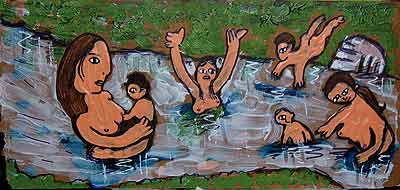
”These wondrous landscapes are always accompanied by, or are the echo of, a marvellous and silent state of hearing and seeing. But in these, sooner or later, as a result human’s ability to exercise free will, the ebb and flow of human activity comes into play. Its waves wash back and forth rhythmically on the beach of the world. As a consequence of the accumulation of experiences and knowledge by successive generations, the waves and winds of the world are agitated in the natural and social landscapes and have led us to these historical crossroads that are nothing other than the ebb and flow or major cycles of time, in which our souls are highly anxious and fearful.Then talk begins of a conflict between civilisations and cultures, which is the inevitable obverse of dialogue between them. It is sufficient to look back over history, back through the passage of time, to understand that this is not a new phenomenon; it has always preceded the rise and fall of civilisations.
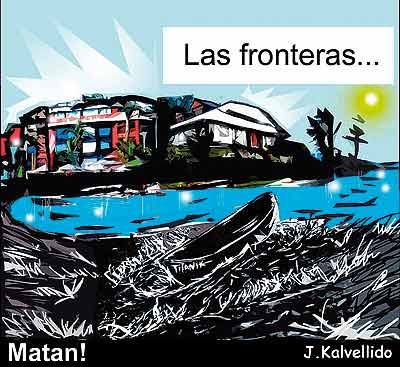
If there is a difference that can be detected it consists of the fact that this time we find ourselves in a global civilisation, closely interconnected by the media and transport, making it impossible to avoid recognising the impossibility of national or cultural isolation. In other words, whether we like it or not, we face a common destiny. From now on we either walk together, opening the doors of a new future or we regress. For the former, it is important to recognise once again that everything we see, but cannot quite believe, (because they are things we either did not believe could happen or did not want to believe could happen, given the parameters of our thinking) are always part of, or echoes of, that state of agitation and nervousness that presages and anticipates the end of one civilisation and the start of another. In the world of intentionality, of free choice, that is to say in the world of human beings, it is necessary to recognise alternatives in order to be able to choose. We can and certainly must love our culture and traditions a great deal, that is, our customs and beliefs because, for better or for worse, they have brought us to this point. But when they start to degrade our habitat, when they start to dehumanise the world, making it harder and harder to live, then it is time to thank our travelling companions, our generational and historical inheritance, and even with a touch of nostalgia say goodbye, to start a new tomorrow. It does not seem to me to be a matter of a dialogue between civilisations exactly, although obviously our disquiet makes us see enemies everywhere. Instead, I get the impression that it is a matter of a cultural opening to the new world that appears before us, that knocks at the door of our collective consciousness.
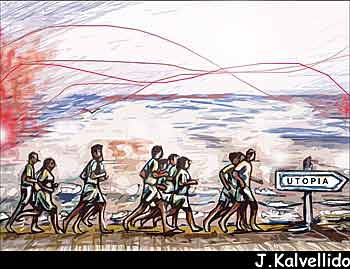
We can no longer continue interpreting the world through our old perspectives, beliefs and customs. The challenge therefore seems to be to open and transcend our cultures, for us to be able to unite in a new common approach to the future that, as the introduction of L´Eco delle Dolomiti states, must transcend the dream to become liveable. Because it is life itself that faces us with concrete and unavoidable demands. There is no culture, race, religion, sex or generation that can avoid such an objective challenge. Therefore it is not so much a matter of having a dialogue as preparing ourselves to understand the extent of that challenge and to give the appropriate responses that structurally propel nature and human life to new and better futures. There are social, human and ecological demands that we can no longer avoid seeing. We cannot continue contaminating the atmosphere; we cannot advocate sowing maize to transform it into biofuel for the very vehicles that contaminate the atmosphere, exhausting the land that should be producing food for a third of humanity, which is already subject to hunger and illness. There is no excuse for invading a nation or being silent accomplices to the death of innocent people, simply to appropriate for ourselves the petroleum that makes it possible to continue a spent,
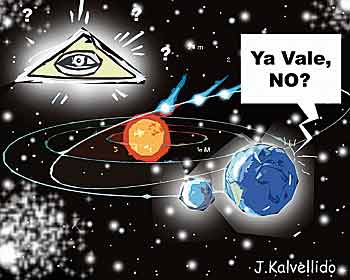
non-viable way of life, instead of recognising and starting to leave behind pointlessly wasteful habits that can only lead us to disaster and back to barbarism. We therefore cannot continue in a representative democracy in which others take lightly nothing less than the decisions as to whether or not our species is to survive. We need to create and be able to access wide ranging and dynamic mechanisms for participation and decision making which can be very effectively realised through the use of modern communications technologies, which convert space and time into here and now. We have everything we need, not only in terms of technology but also in terms of history, the knowledge that great challenges have always stimulated the best of our creativity and sense of solidarity. It only remains to understand what the challenges and inescapable answers are that must give us a common direction, propelling us towards a new future. That,
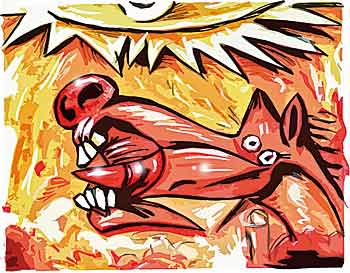
then, is my way of seeing the dialogue or debate which we must have no matter what culture we belong to and into which, through good or bad luck, we were born. Because now it is not a question of inheritance and limitations, but rather of having the opportunity to choose. If there is anything that defines human beings and their history, I believe we can risk saying that it is the increasing freedom of choice that human beings have been gaining over nature, and over their own social organisation. And that is what this historic situation is about, this new and inescapable opportunity; to choose and to build the future that we wish to live together. To recognise and leave behind that which opposes this.
